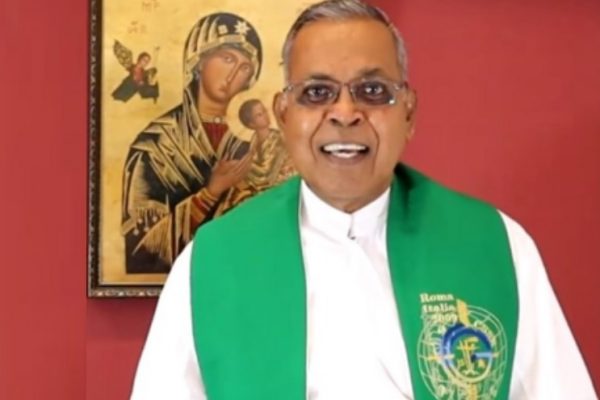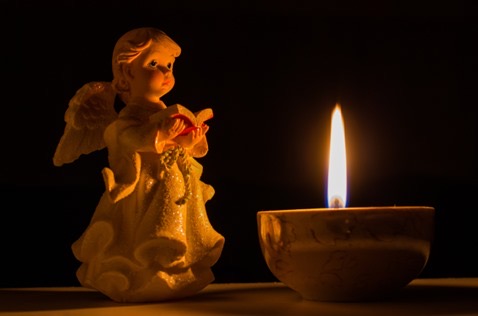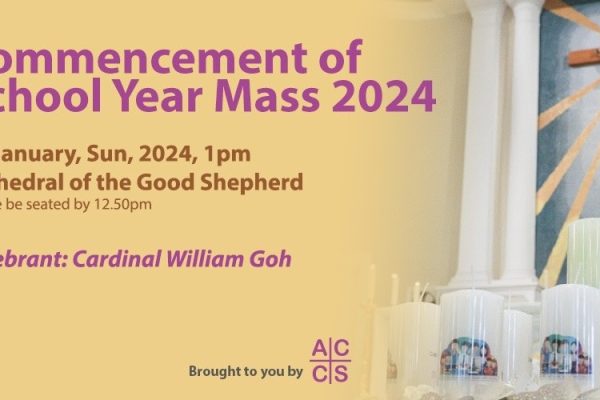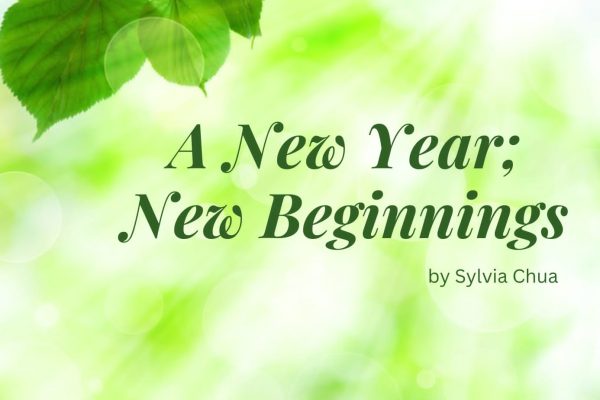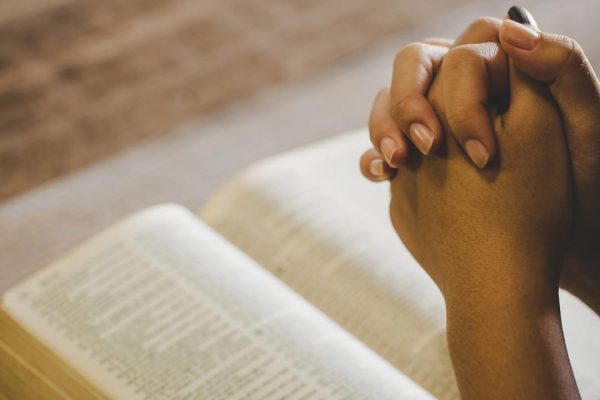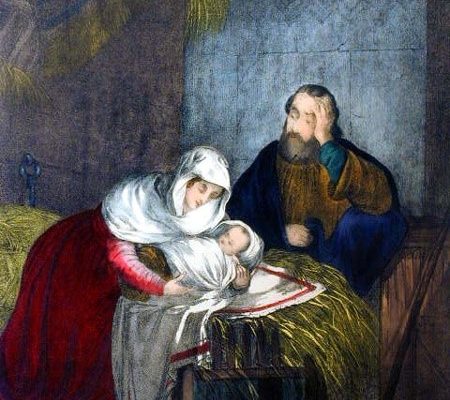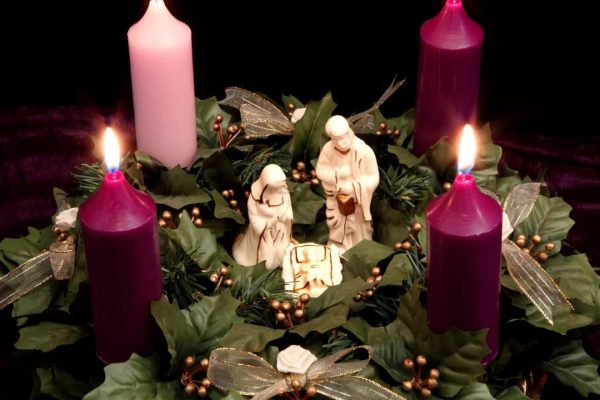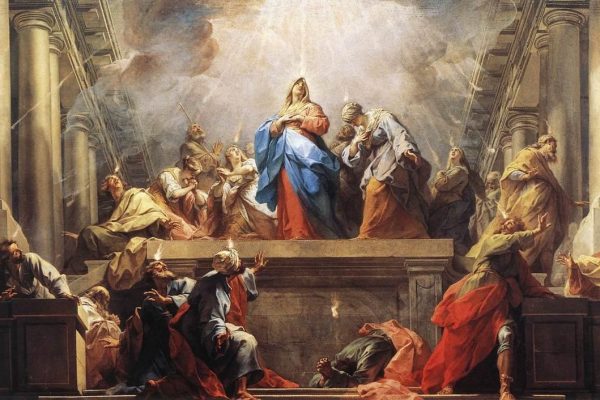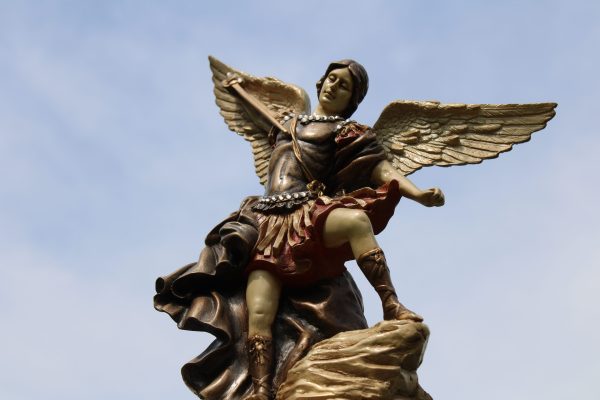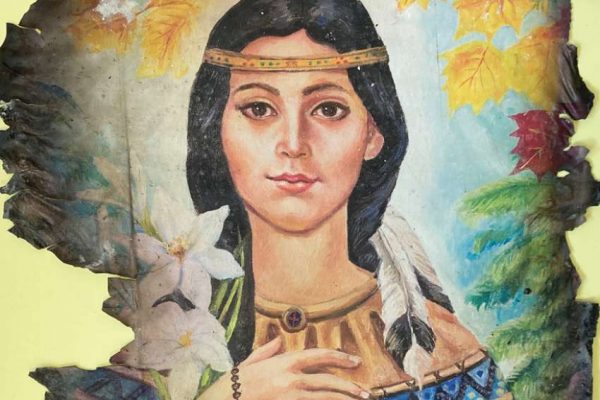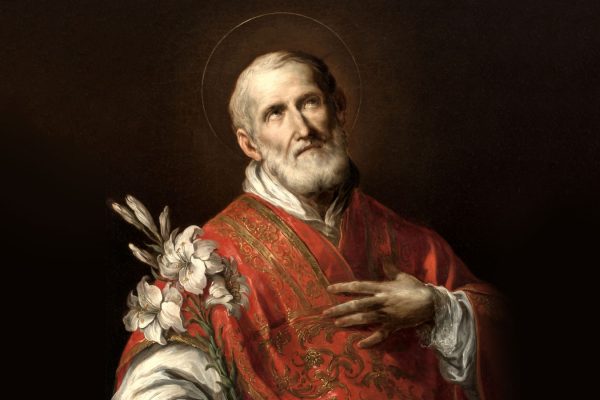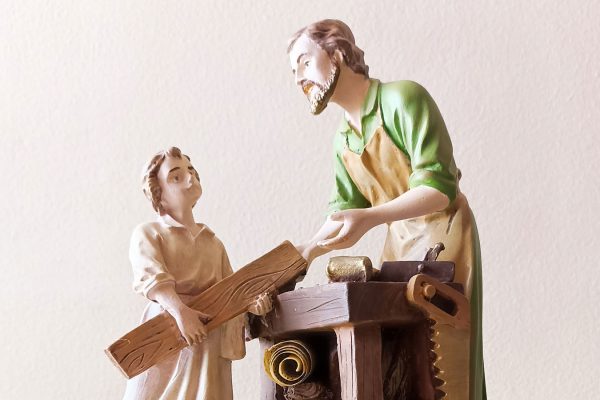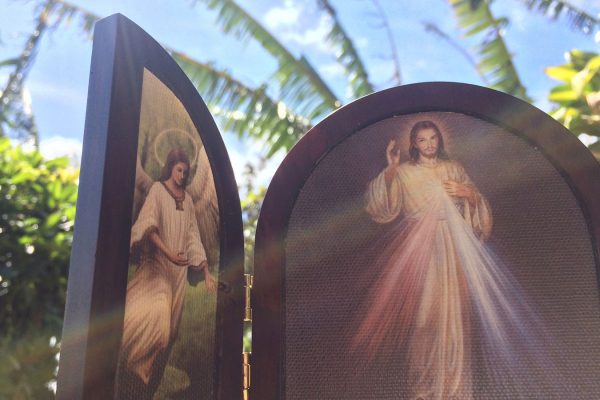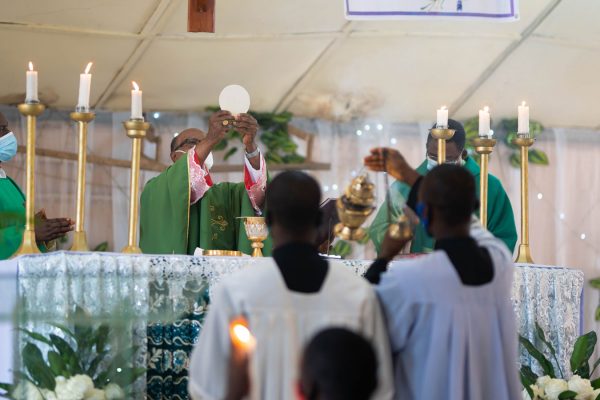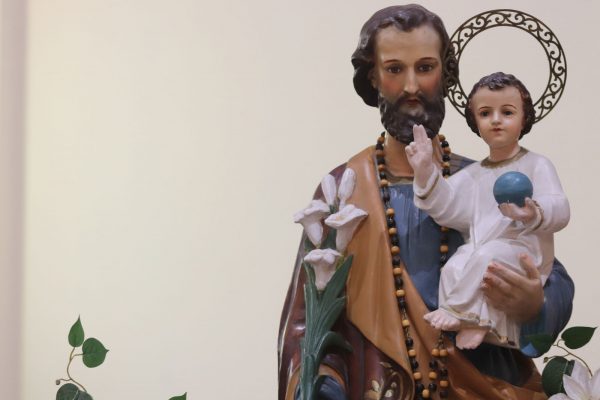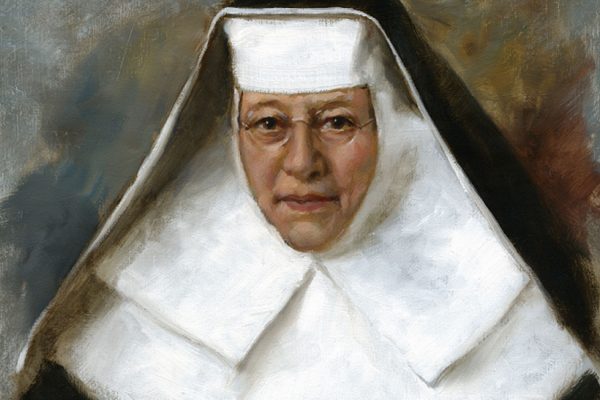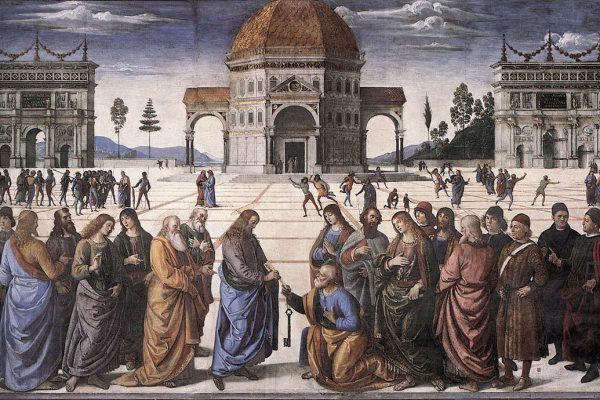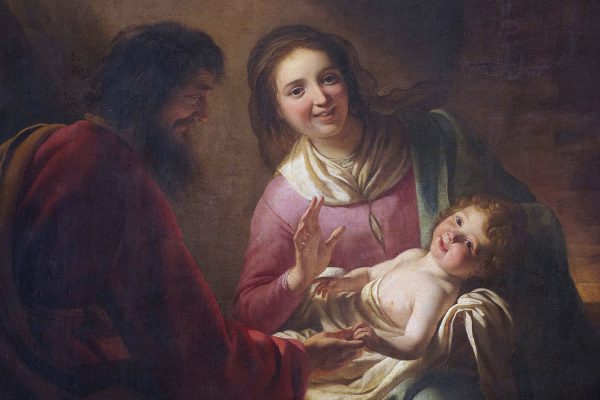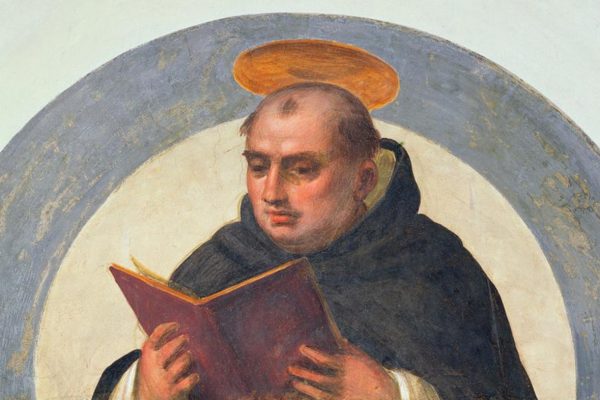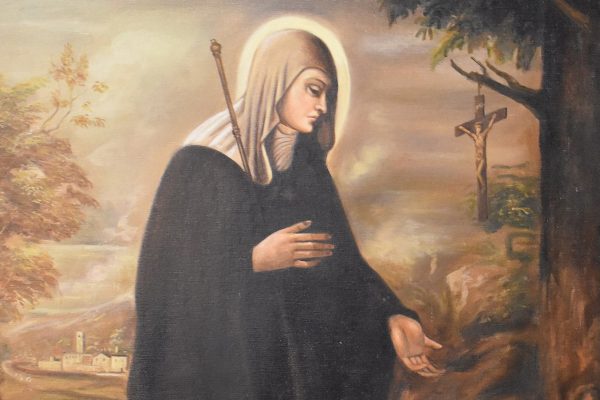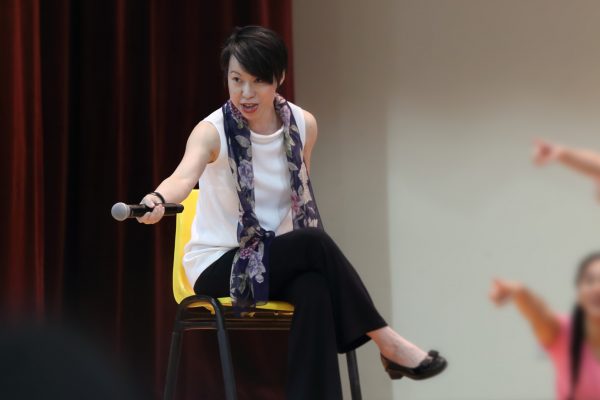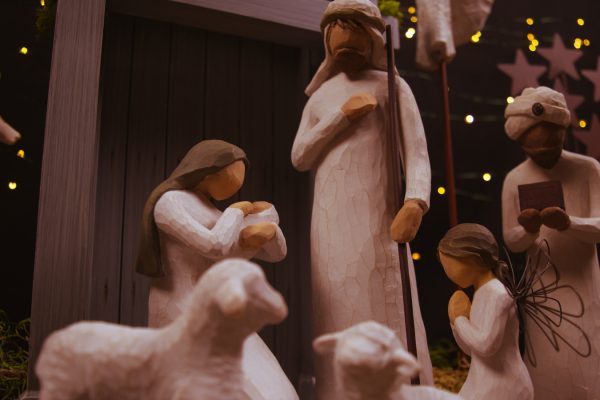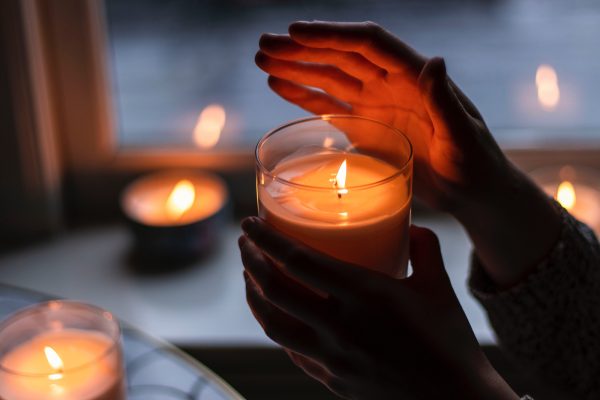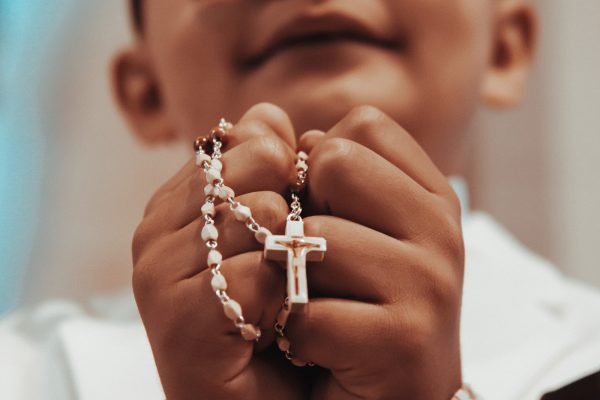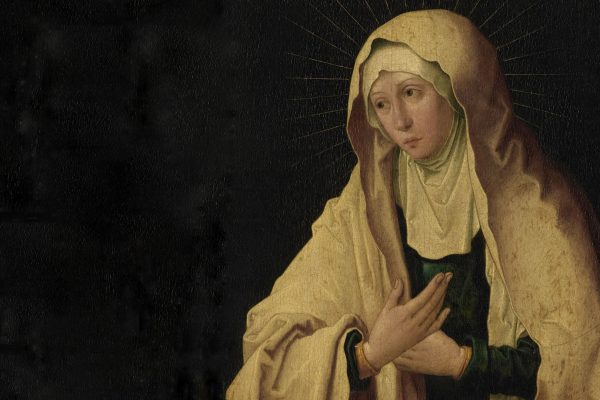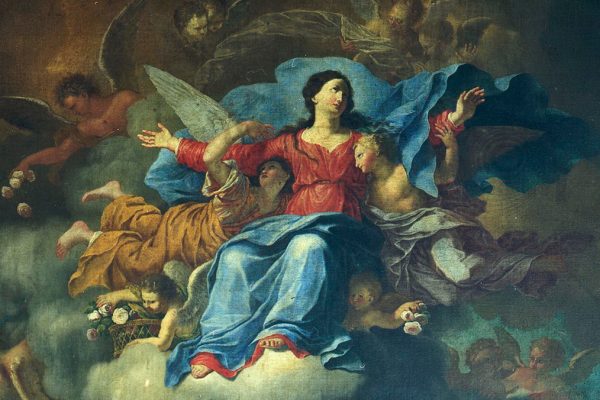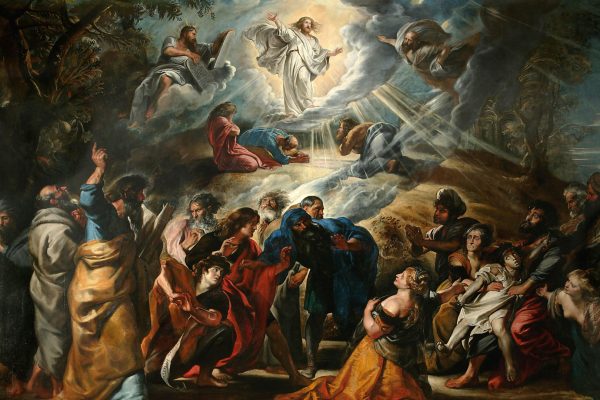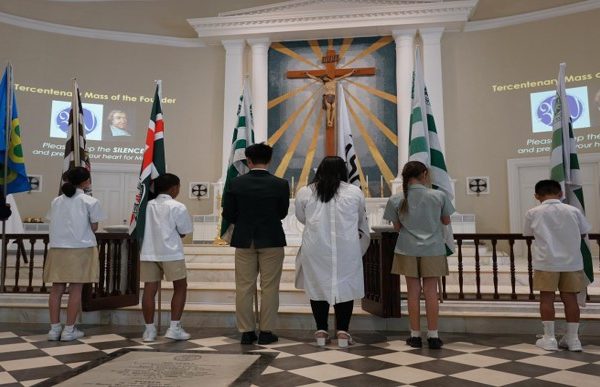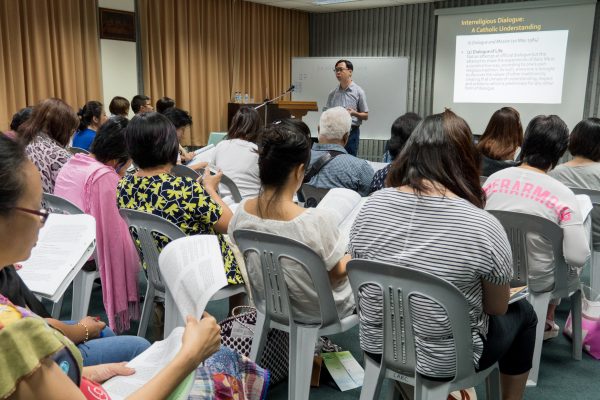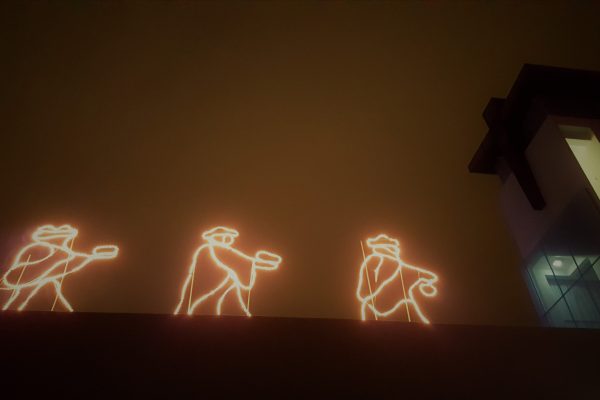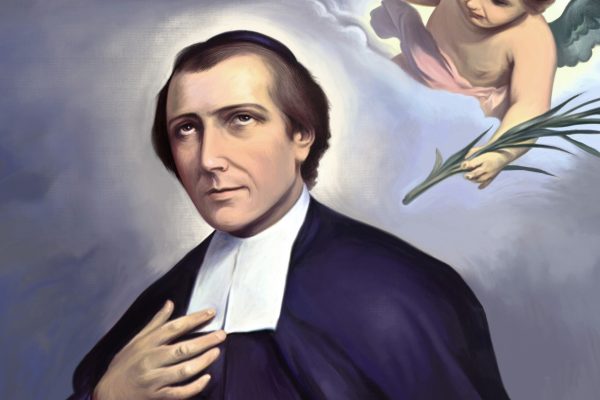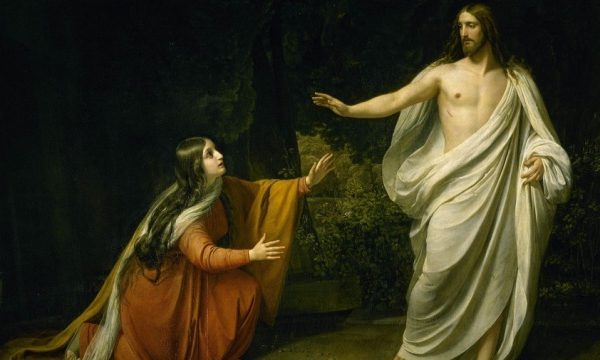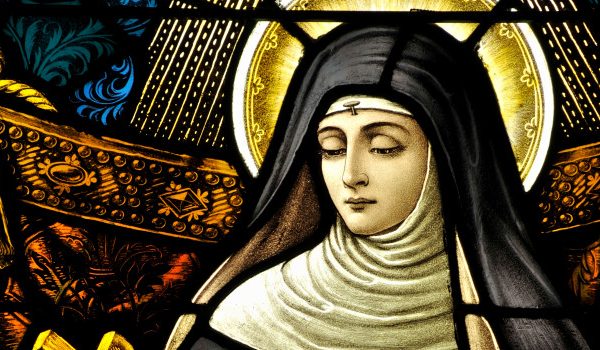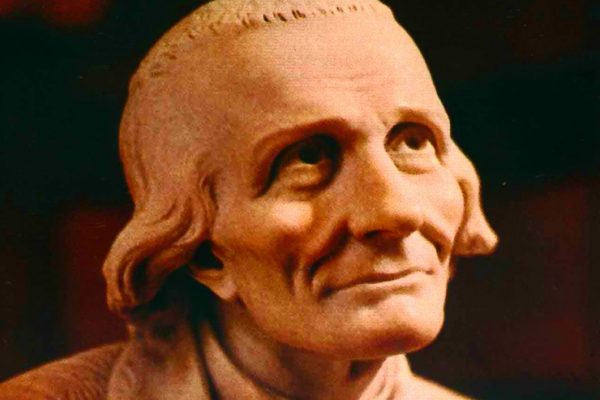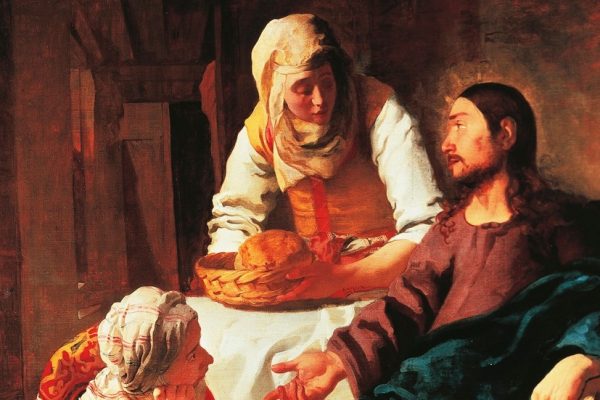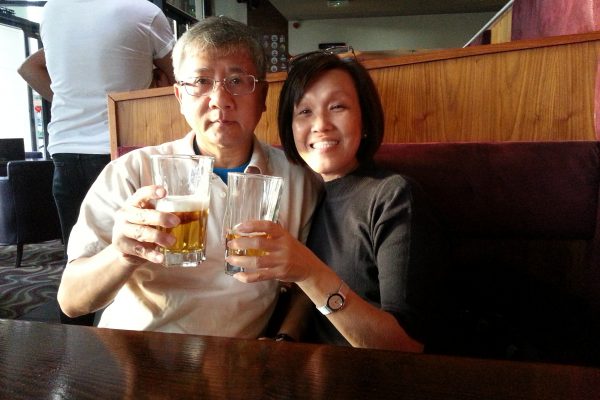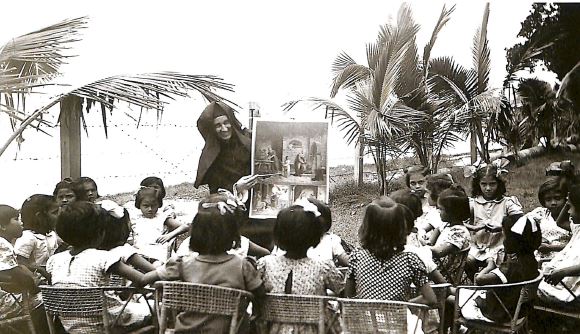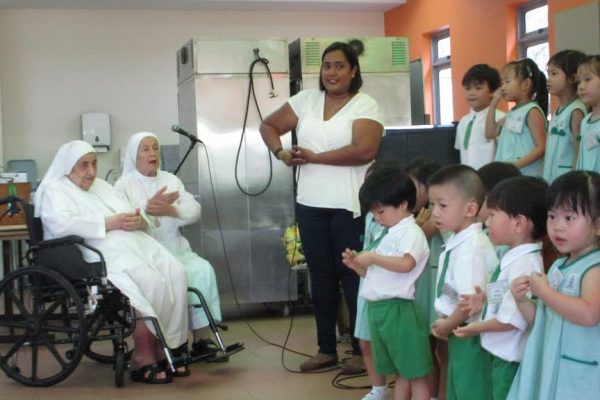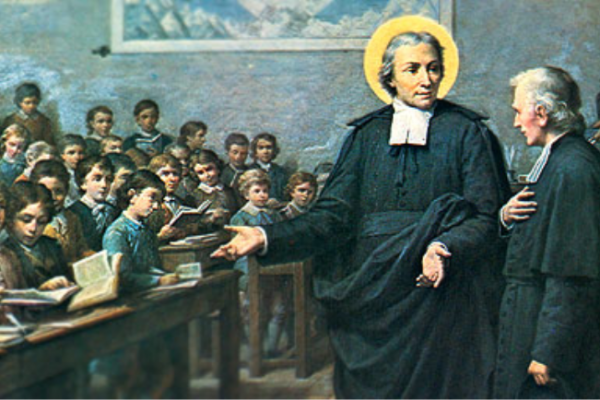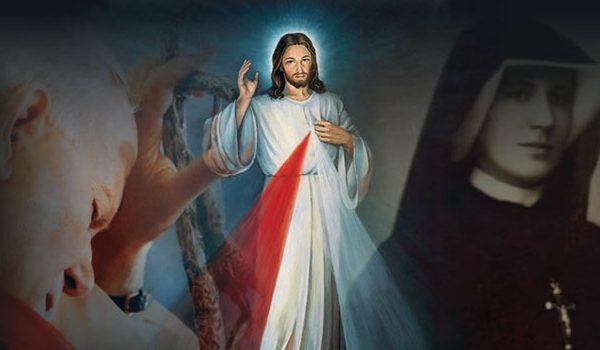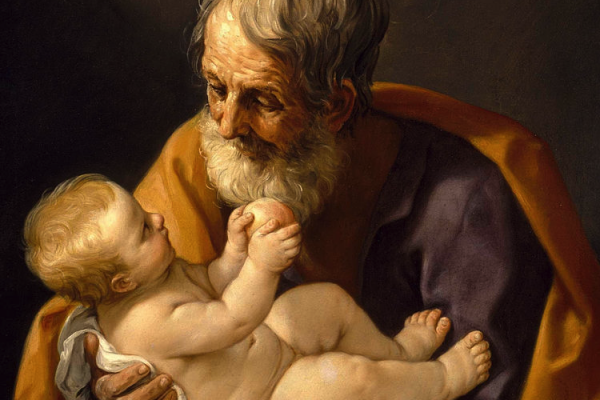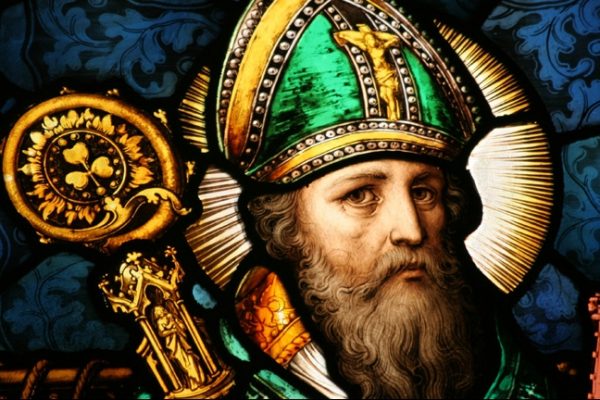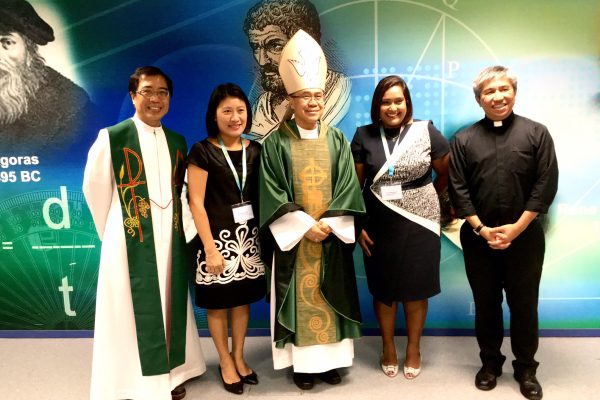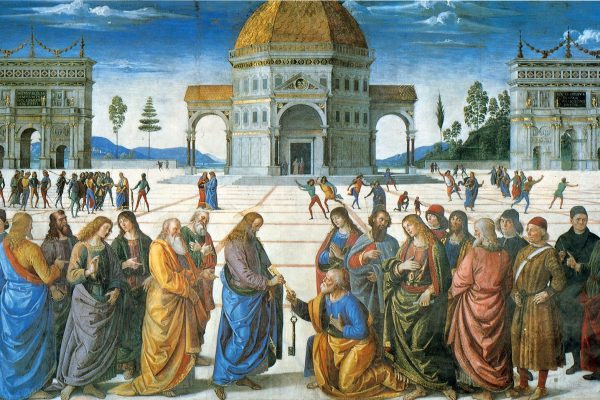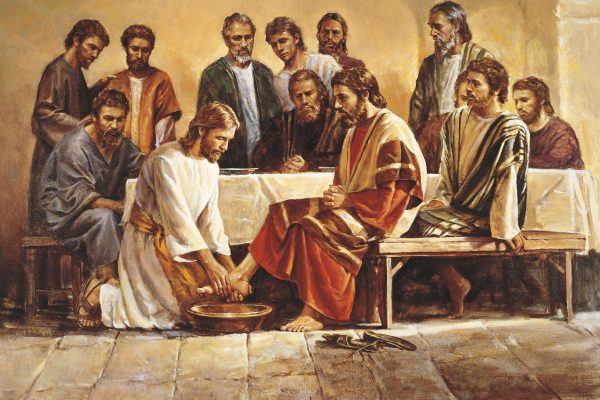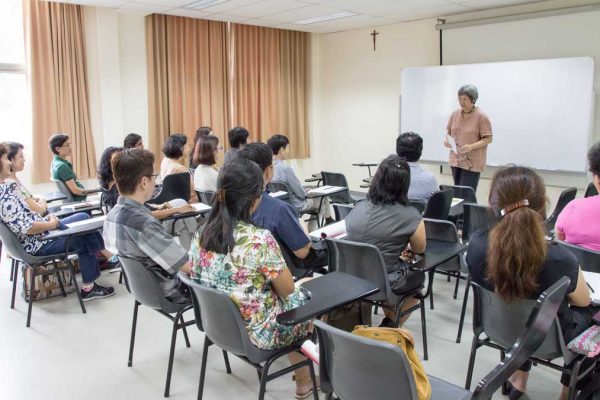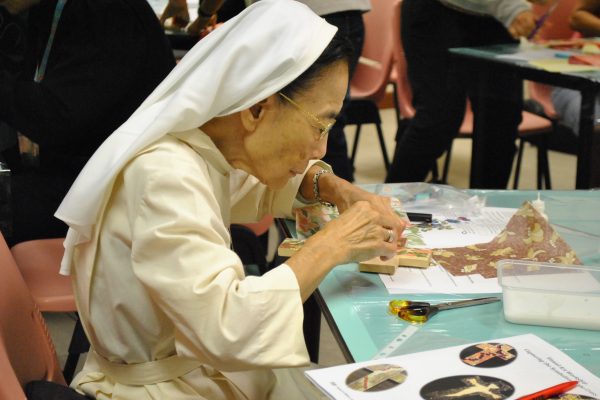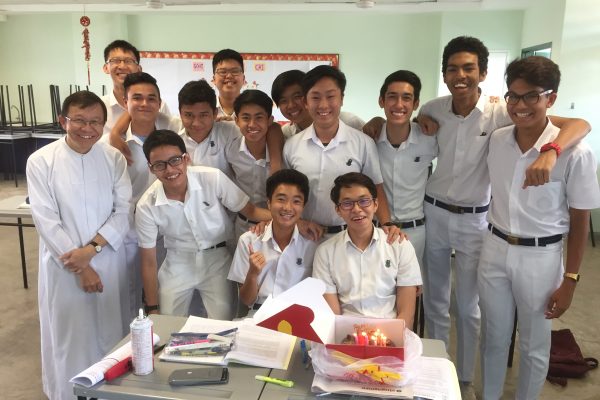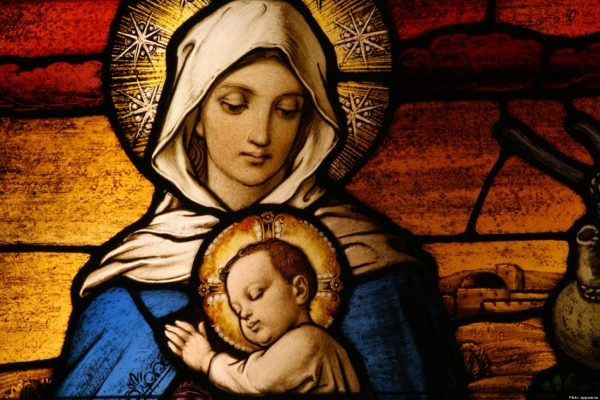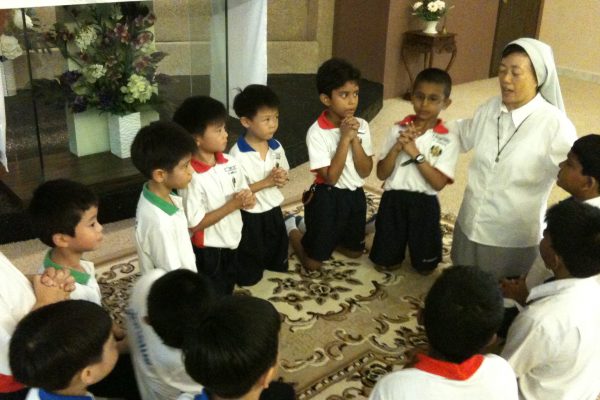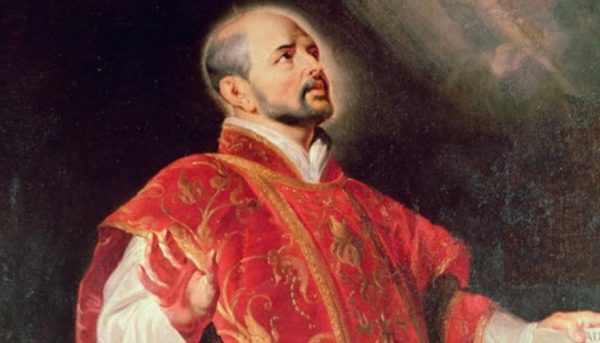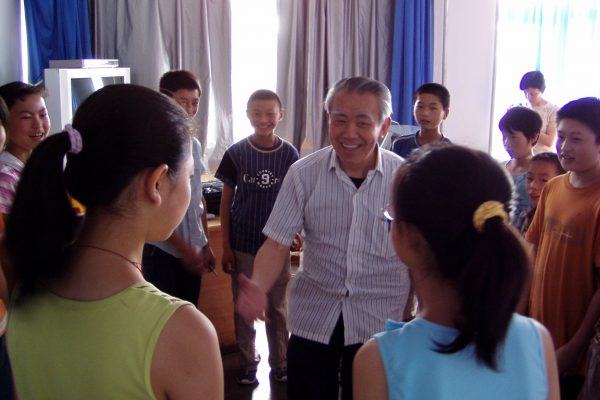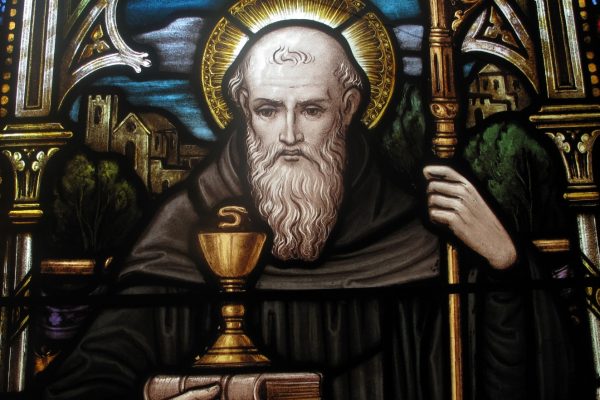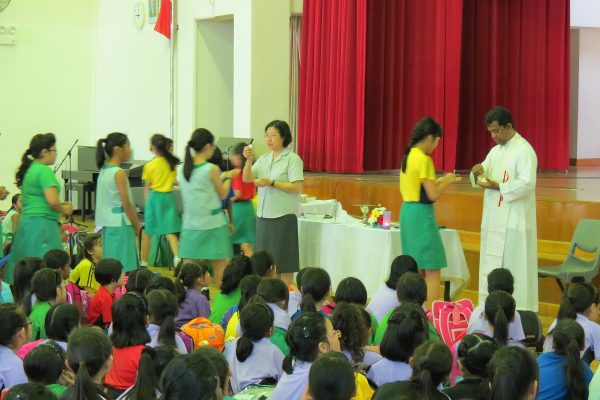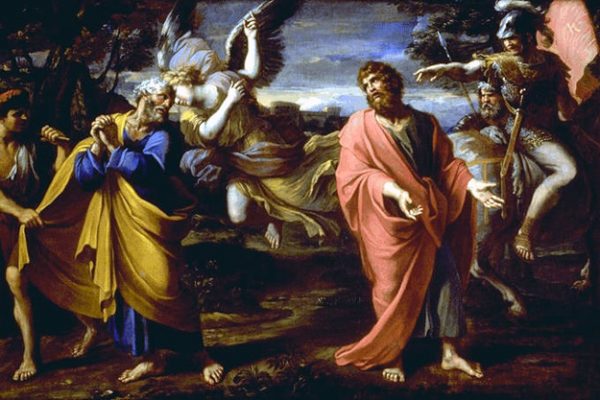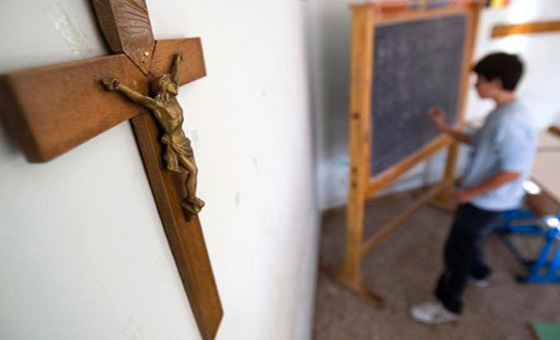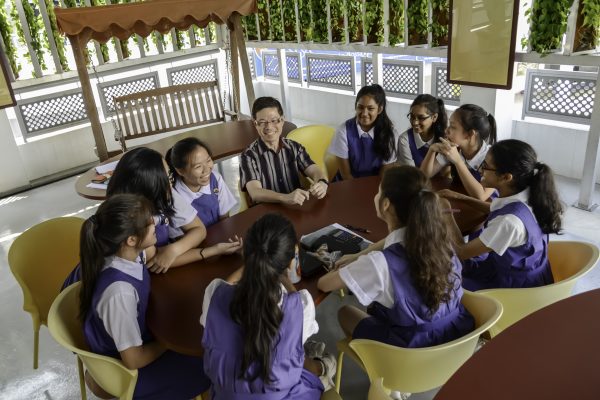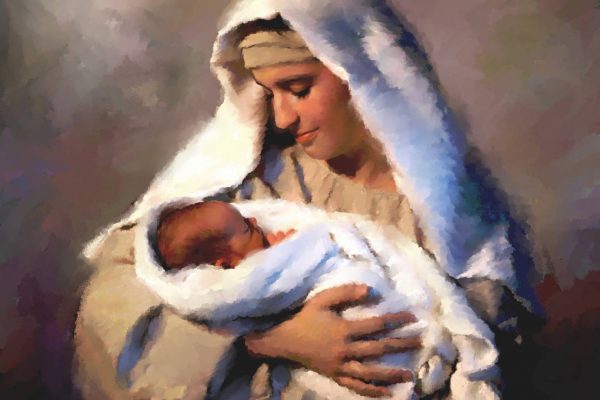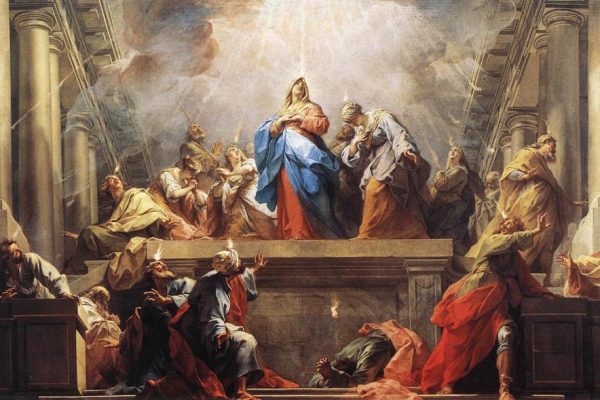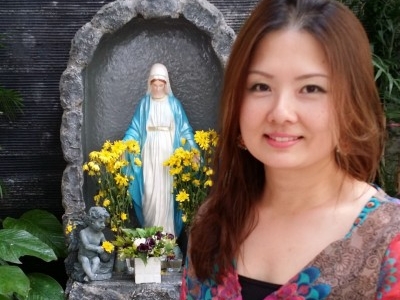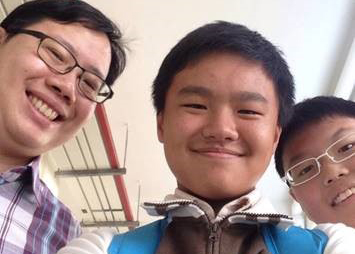
A day in the life of… Nick Chui
Nick Chui, 35, does not teach in a Catholic school, but that does not change his purpose and calling.
Why did you want to be a teacher? What were you doing before becoming a teacher?
I was involved in delivering presentations on sexuality education and writing articles explaining and if necessary defending Catholic teaching in the area of marriage, family and pro-life issues in my previous job. I was also a catechist at the same time. I felt that I was making some impact on the students but my encounter with students was usually one off or over a limited period of time. As a teacher I felt that I could impact my students to think critically, write well, and plant seeds of the Word in their hearts so that they would be drawn to the possibility of authentic love and purpose.
What is the biggest challenge you face as a Catholic educator?
To be constantly conscious of the presence of the Holy Spirit in whatever I do.
If you weren’t a teacher today, how different would your life have been?
I think without the daily encounter with my students, the practice of my faith may lack a concrete pastoral focus. Pope Francis speaks to Christians, challenging them to go “out to the periphery.” He believes that “A church that doesn’t get out, sooner or later, gets sick from being locked up”. From the point of view of faith, teaching in a government school is indeed a periphery. I am one of two Catholics in the school. Can I witness to Christ in such circumstances and be inspired by the Church’s teaching? Previously, I tended to speak at the ‘theoretical level.” With this daily encounter with students, I am able to share and see how what I have written and thought about on a “theoretical” level is translated in concrete life circumstances.
What is your fondest memory/experience as a teacher?
Being voted “most encouraging teacher” by students for the second year running. When students spontaneously share that they miss your lesson or when they recall something you say and apply it as a life lesson, it makes my day. I hope that I am being an encouragement to them in the manner Christ would have wanted.
What do you like most about being a Catholic?
Knowing that I am loved by Jesus Christ and being able to encounter him in the Eucharist. Also, knowing that I am a member of the community he founded, the Catholic Church, built upon the rock of Peter and the apostles.
What do you like most about being a teacher?
The opportunity to imitate and draw inspiration from Christ the teacher.
Has your faith affected you in your role as a teacher in any way?
My faith affects my role as a teacher in every way. Faith offers a vision, a way to approach things, the way Christ would approach it, as he preached and built the Kingdom of God. When I am tired of teaching a class, my conscience prompts me to go the extra mile for a student, even though he or she may not be grateful. It affects me so that I would speak out in situations which I consider unjust. It affects me in my relationships with my colleagues and parents.
What are some of your key priorities as a teacher?
A key priority for me is to find meaning in all I do and help my students to find meaning too. Meaning and purpose are the keys which drives human action. It is the foundation without which life would be existentially boring. Existential boredom usually lead to poor academic grades and disciplinary issues.
What is one way you try to inspire your students?
I share with them my life experiences, I am not a perfect person, but I have found Christ and meaning. I would like my life to be a dialogue with theirs, to aspire together to higher standards as these standards are not mine per se, but what fulfils a human person. I avoid hypocrisy and am not afraid to apologise when I have done something wrong.
Do you try to share your faith with students? How so?
Yes I do. My students will quickly discover that I am Catholic as I would share this as I introduce myself to them. Some will approach me and chat about life and its purpose. This inevitably leads to questions about religion. Nevertheless, I will however always put on record that I will never force my students to accept my opinions about life. While I may be the “expert” in a particular subject, I am a “co-pilgrim” when it comes to life and its meaning.
While teaching history and English literature is not explicitly about Jesus Christ, I am nevertheless very conscious that in Christ, “He is before all things, and in Him all things hold together.” (1 Col 1:17). The truths in history or English literature are never unrelated to Christ. When I teach my students how to think critically, how to empathize, how to write a good paragraph, I am doing the work of building the kingdom, of doing my part in forming human beings into intelligent and good people.
I am also one of the teachers involved in Boys Brigade, a Christian organization. In the Boys Brigade, we can talk about Christ and the message of his kingdom in an explicit manner.
How do you keep close to God?
By praying the liturgy of the hours, Lauds and Vespers, meditating on the scriptures, praying the rosary, and attending weekday Masses if possible.
What brings you joy in life?
Knowing that I am loved, that the world is loved, and that all will be well in the end.
What do you like to do in your spare time?
I play chess. I am also involved in the Legion of Mary and the Catholic Theology Network, a gathering of Catholics interested in theology.
What is your favourite scripture passage?
“Though he was in the form of God, Jesus did not regard equality with God something to be grasped. Rather, he emptied himself, taking the form of a slave, coming in human likeness; and found human in appearance, he humbled himself, becoming obedient to death, even death on a cross. Because of this, God greatly exalted him and bestowed on him the name that is above every name.” (Phi 2:6-9)

